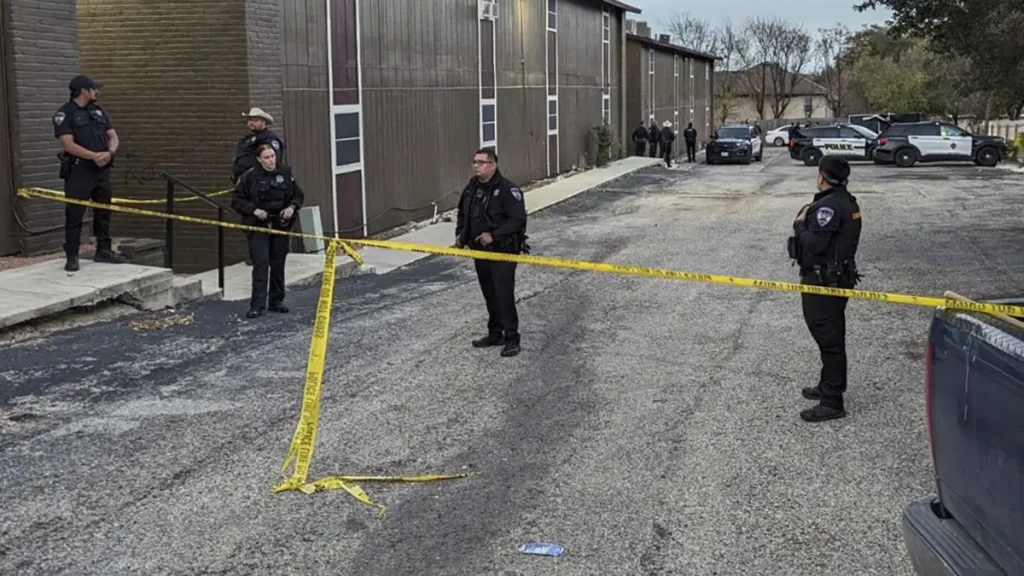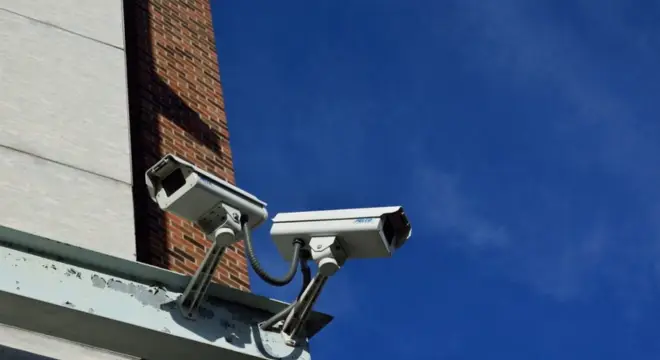Father Killed in Parking Dispute — Is Your Driveway Really Safe?
Home is meant to be a place of peace, comfort, and protection — not where lives are lost over something as trivial as a parking space. Yet, incidents like these are becoming more common, where everyday disputes turn into deadly encounters.
The recent killing of a father in Texas over a parking disagreement isn’t just heartbreaking — it raises urgent questions about how secure our homes and neighborhoods truly are. As homeowners, it’s time we look beyond locks and alarms and ask: Are we actually prepared for threats that come from just next door?
A Tragic Case That Shocked Texas
On April 27, 2025, a man was shot and killed outside an apartment complex in Houston during a confrontation over a parking space. The victim was later identified as Abdul Rahman Waziri, an Afghan refugee, father of two, and a respected member of the community. According to police reports, the altercation escalated quickly and ended with gunfire, all within view of his family and neighbors.
As reported by the Houston Police Department, officers responded to the scene around 8:30 p.m. and found Waziri unresponsive with gunshot wounds. Despite clear video footage and multiple witnesses, no arrest has been made. Coverage from Click2Houston and ABC13 confirms that the alleged shooter has not faced charges, leaving Waziri’s grieving family calling for justice and transparency.
The fact that someone could be killed in front of their home — and yet no charges have been filed — has shaken the trust many families place in their community safety and legal systems.
Why This Isn’t Just a Crime Story — It’s a Home Security Wake-Up Call

While this case is deeply tragic, it also reflects a larger issue that homeowners and renters alike cannot ignore. Home security is often thought of in terms of break-ins or burglaries — but incidents like this remind us that conflict with neighbors can be just as dangerous, if not more.
This wasn’t a break-in. It was a failure of community conflict management, legal follow-through, and preventive security culture. Surveillance footage existed. Witnesses were present. And yet, the justice system has not responded in a way that reassures the public. This makes it clear that cameras and alarm systems alone are not enough if there is no system in place to act on what they capture.
It’s time to expand the definition of home security to include neighborhood relationships, de-escalation protocols, and active community engagement. If those elements are missing, even well-guarded homes can become vulnerable.
How Small Conflicts Turn Into Deadly Outcomes
Disputes over parking, noise, fences, or even pets are common in neighborhoods across the country. But when tempers rise and there’s no system in place for mediation or safety enforcement, these small issues can escalate dangerously fast.
In the case of Abdul Rahman Waziri, what should have been a brief disagreement turned fatal — within moments. This is a clear example of how unchecked aggression, poor conflict resolution, and lack of rapid community response can create an environment where violence feels like the first option, not the last.
Psychologists and criminologists have often pointed to the “broken windows theory,” where minor signs of disorder in a neighborhood — like parking violations or disputes — can lead to more serious crimes if left unaddressed. Without proper communication channels or neighborhood guidelines in place, frustration brews. And sometimes, as we see in this case, it ends in irreversible tragedy.
A shocking case of violence unfolded when an off-duty NJ cop was arrested for a violent home invasion in Berkeley Township, highlighting the growing need for enhanced home security.
What Can Be Done — Practical Security Improvements for Your Home and Community

This heartbreaking event forces every homeowner, tenant, and community leader to ask: What can we do to prevent this from happening again? While we can’t control others’ behavior entirely, there are several proactive steps to help reduce the risk of violence and improve safety on both personal and neighborhood levels.
Here are practical strategies that homeowners can implement today:
- Install High-Definition Outdoor Cameras with Audio: Clear footage is critical — not just for identifying incidents, but also for preventing them. Knowing they’re being recorded often deters impulsive aggression.
- Set Up a Neighborhood Watch or Safety Group: These grassroots systems increase accountability. Even a WhatsApp group among residents can make a difference.
- Use Smart Doorbells: Devices like Ring or Nest Doorbell not only record but allow for two-way communication. It can help in calmly managing unexpected interactions at your doorstep.
- Add Motion-Activated Lighting: Well-lit areas reduce the likelihood of nighttime altercations and provide a psychological sense of order and safety.
- Support De-Escalation and Mental Health Awareness: Work with local authorities or organizations to host workshops on conflict resolution — especially in high-density living communities.
- Encourage Transparent Parking Rules in Shared Spaces: Misunderstandings about parking can be prevented with signage, marked spots, or community agreements.
The goal is not to live in fear — but to be prepared, informed, and connected with your environment.
The Bigger Picture — Home Security Is a Community Effort
The tragic incident in Texas isn’t isolated. Across the nation, minor conflicts are escalating into violence, particularly in urban environments where people are packed closely together. This reflects a growing issue — home security isn’t just about safeguarding physical property; it’s about safeguarding relationships and the overall security of the community.
For true peace of mind, security needs to extend beyond individual homes. It’s about how neighborhoods interact, how they handle disputes, and how residents work together to reduce potential dangers. Shared responsibility is key. Homeowners and renters alike must be committed to creating environments where conflict is resolved peacefully and where vigilance and cooperation are priorities.
Security measures that are solely focused on individual property are important, but they are not enough. A cohesive community with clear communication channels, shared safety goals, and mutual respect provides a sense of security that walls, cameras, and locks alone cannot. This incident in Houston highlights the need for stronger community engagement in promoting both physical security and psychological safety.
Conclusion
The tragic death of Abdul Rahman Waziri in Houston should serve as a wake-up call for homeowners, communities, and local authorities. It’s clear that our traditional notions of home security need to evolve. Security is not just about preventing break-ins; it’s about creating a space where neighbors can coexist without fear of violence, and where conflicts can be resolved without escalation.
For those concerned about their own homes, the first step is to take proactive measures — invest in better security systems, but also encourage open dialogue with neighbors, establish safety norms in shared spaces, and promote conflict resolution. It’s about fostering a sense of responsibility that goes beyond protecting your own home.
In the larger picture, we need to shift from reactive security measures to preventive ones that involve the entire community. Only when we come together, both physically and psychologically, can we create truly safe spaces for ourselves and future generations.
For more tips on securing your home and fostering a safer environment, explore our Home Security sections.
Disclaimer: The views and opinions expressed in this article are based on the information available at the time of writing. While we aim to provide accurate and helpful advice, the specific circumstances of each incident may vary. This article is for informational purposes only and should not be considered as legal or professional advice. For immediate or specific concerns regarding home security or legal matters, please consult with a professional or local authorities.


